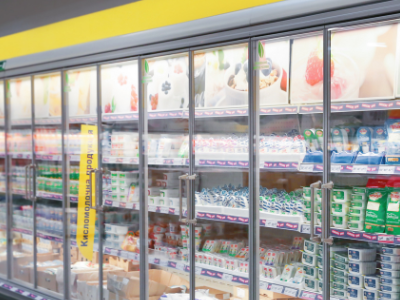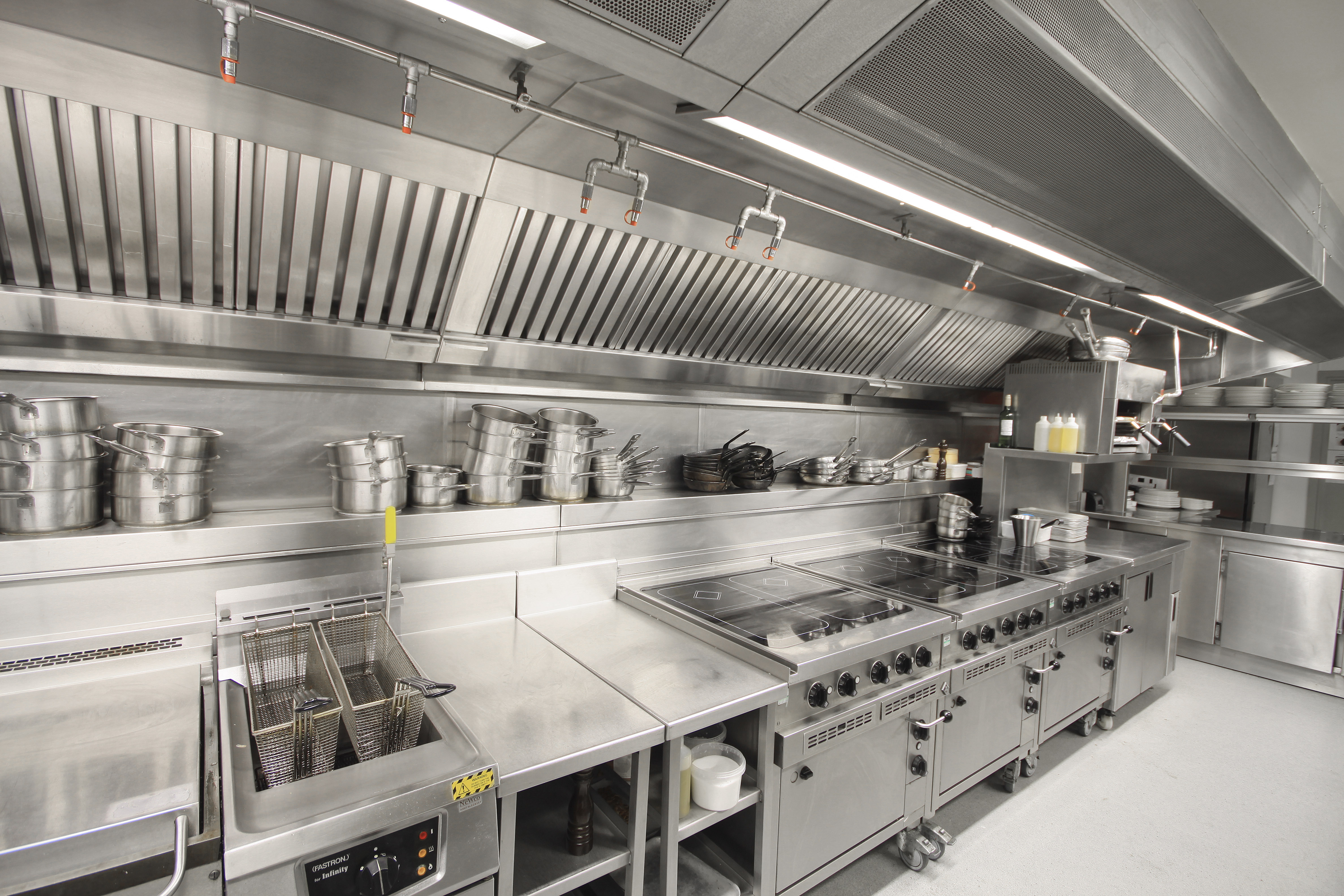Is your task list getting longer and longer? Chances are that when there aren't enough hours to complete your small business...
Is your task list getting longer and longer? Chances are that when there aren't enough hours to complete your small business needs, it's time to consider purchasing a POS system to take some administrative burden off your shoulders. Of course, you know that you'd like to consider a used POS system — after all, inflation isn't expected to come down anytime soon. But do you know where to start beyond knowing you're considering a used POS system? In this blog, we're rounding up all the information you'll need for your next POS system purchase. So get ready to find out all the answers to your questions. We're diving in for the next four minutes to review all things used in POS systems for small businesses.
What is a POS System?
A Point-of-Sale, or POS for short, is a system that tracks business transactions. They've been around for nearly a century and a half and have come long since the first sale was recorded. Jumping back to the nineteenth century, the first mechanical POS system was an analog cash register created by James Ritty of Dayton, Ohio, in 1879. Although features included a bell ringing when sales were made and buttons recording sale prices, these first registers did not yet have a cash register. Over time, those were added, along with LCD screens, credit card magnetic strips, thermal printing, and the ability to update multiple registers instantaneously using one POS system digitally.
So much has changed that it's becoming more complex to sift through all the data to find the right POS system. But knowing what options are out there (including some great used POS systems!) can give you the knowledge and confidence that you're choosing the right POS system for your small business.
What to Look for in a Used POS System
Regardless of the POS system brand and model, yours should include a handful of core features.
12 Key Features Your Used POS System Should Include:
- Sales reporting
- Returns and refunds processing
- Sales promotion features
- Credit card processing
- Customer purchase history
- Membership Database
- Programmed reminders
- Inventory database
- Employee time tracking
- Gift card creation
- Open API (Application Programming Interface)
- SaaS-based program (Software-as-a-service)
Why are these used POS system features so important? First, they can help increase your small business's productivity by streamlining and automating processes. Used POS systems can capture a vast amount of complex data and immediately categorize sales data for a fleet of sites. This real-time data can open a new doorway to sales analytics data that is immensely valuable for planning quarterly and yearly projections and finding room for improvement.
Additionally, used POS systems for small businesses can help improve inventory levels and employee productivity. How so? Today's POS systems can store an inventory database, including an automatic tracker for when items are replenished and sold. While a physical inventory still needs to be performed for accuracy, having a POS system primarily keeping tabs on this granular data can help small business owners reallocate employee time. Also, employers and employees can keep tabs on individual and team productivity goals; This can help pinpoint individual sales targets and objectives and help employees achieve them faster.
3 Questions to Consider for a Used POS System
Now that you're well-versed on what to look for in a used POS system, you're most likely wondering a few questions. After all, you're getting ready to invest in one of your small business's most significant assets and want to ensure you get it right. That's why we're answering three top questions you'll want to consider for your next used POS system.
How Robust of a POS System Does Your Small Business Need?
Depending on your line of business, geographic size, number of employees, and scaling goals, you may be able to start with a simple POS system. For example, with today's technology, small business owners managing pop-up stores or food trucks could have a POS system with only an Apple iPod with installed POS software. Conversely, your small business could require a more robust POS system setup. Therefore, you'll want to consider how your business performs today and how well it's expected to perform in the next five to ten years. Working through these projections will help you determine how robust a system you'll need for your small business needs.
What are the Most Reputable Used POS System Brands?
POS system brands that are topping the 2023 charts have included:
- Aloha Cloud
- Clover
- eHopper POS
- Korona POS
- Lightspeed POS
- PayPal POS
- QuickBooks Point of Sale
- Shopify POS
- SpotOn
- Square POS
- Stripe Terminal
- Stax
- Toast
While considering a used POS system brand, you'll want to involve your IT specialist in the discussion. Depending on any other systems that need direct communication with your used POS system, it may be best to stick with the same brand. Or, if you're starting from scratch, you'll want to compare top brands side by side to find a match for your small business.
Are Used POS Systems Securely Compatible With Your Hardware?
Regarding compatibility, you'll want to ensure that your used POS system is the latest model available, ready for new software updates regularly, and connected to a secure endpoint in your hardware. These safeguards will help prevent malware and connectivity issues and comply with PCI DSS (Payment Card Industry Data Security Standard), a set of security standards that ensure small businesses dealing with credit card payments are processing them for customers and merchants in a secure fashion.
Additionally, you'll want to carefully review your software and hardware specifications with your IT specialists before purchasing your POS system. They'll want to have a broad range of knowledge of the POS system you're considering, knowledge of servers, troubleshooting, and so forth.
The Importance of Having a Contingency Plan
Things go wrong in small businesses. Registers go down, IT specialists aren't always available, system communications drop off, or choosing the wrong used POS system could have lasting consequences. The list could go on and on. Reading this list, we're sure you could add a few things too! That's why it's so important to have a contingency plan. Small business owners often write these into their business plan's policies and procedures. While all scenarios can't be foreseen, by having a strategy and plan of action, you'll be able to help your team get over technical hurdles and back to doing what they do best.
If (and When) Your Registers Go Down
For small businesses, the question is not if the registers will go down, but rather when the registers go down, do you have a contingency plan? The first thing you'll want to plan is to set up an extra POS iPad (or Android tablet) and have it readily available on a charging port near your point-of-sale area. Additionally, you'll want to keep an extra register or two standing by in case some, but not all, registers go down.
If You Don't Have an IT Specialist Available
For some small businesses, hiring an in-house IT specialist is non-negotiable; For other small businesses, utilizing third-party specialists on an as-needed basis works best for their needs. Regardless, if you find yourself in a situation where you don't have an IT specialist available, you'll want to ensure that you're training several employees to troubleshoot fundamental issues. Additionally, you'll want to check your endpoints. For example, problems can occur with the POS system, but they could also react due to server or installation point errors.
Let Us Help You Find the Perfect Used POS System
SAM Auctions is a premiere auction, liquidation, and reverse logistics company headquartered in Phoenix, Arizona, with locations across the U.S., Mexico, and Canada. We're licensed, bonded, insured, and qualified to conduct auctions throughout the United States. We can connect you with quality assets, including used POS systems, both live and online, either from a local facility, at one of our multiple warehouse locations, or through our online e-commerce platform. Check our current events listing for auctions and assets for sale.
Recent Posts
Commercial refrigeration equipment represents one...
The phrase "New Year, New Me" is commonly used to...
This Holiday Season, Unwrap the Savings and...
Posts by Tag
- Surplus Asset Management (5)
- Corporate Sustainability (4)
- Equipment Sales (4)
- Grocery Store Auctions (4)
- Auction Options (3)
- Removals (3)
- Used Grocery Equipment (3)
- Restaurant Equipment (2)
- POS systems (1)
- Refrigeration Equipment (1)
- Sustainability (1)
- Used Restaurant Equipment (1)
- auctions (1)
Popular Posts
In this current economic climate it’s not...
Whether you’re looking to start a restaurant...
The push for every industry to “go green” is not...






.png)